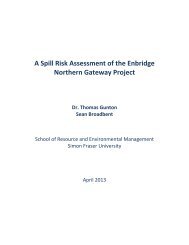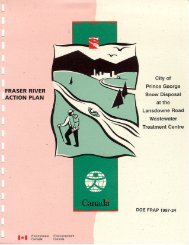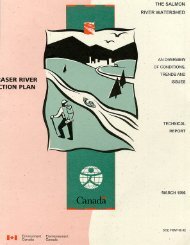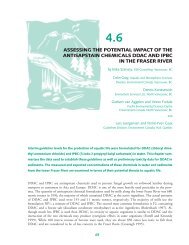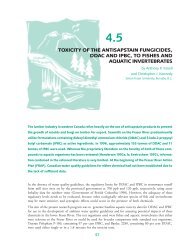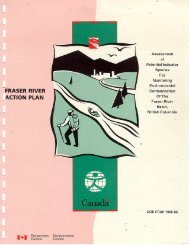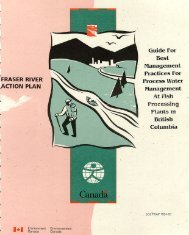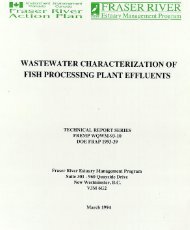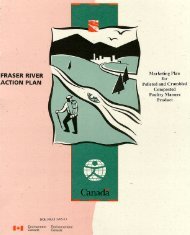Livestock Waste Management Practices And Legilation Outside Br
Livestock Waste Management Practices And Legilation Outside Br
Livestock Waste Management Practices And Legilation Outside Br
You also want an ePaper? Increase the reach of your titles
YUMPU automatically turns print PDFs into web optimized ePapers that Google loves.
2.1.2 WATER POLLUTION<br />
5<br />
Disposal of excess manure from intensive livestock production is seen to be one<br />
of the sources of pollution to groundwater and in some cases drinking water<br />
supplies. Water pollution, whether it is surface or groundwater, is the most<br />
obvious concern related to livestock waste management and the initial reason<br />
many governments have been forced to deal with livestock waste policy<br />
development. Over the last decade, levels of groundwater contamination by<br />
nitrogen have become apparent. When people perceive that their drinking water<br />
may be polluted with livestock wastes, they become intensely concerned.<br />
Almost every country has some type of water protection legislation which is often<br />
the basis for starting to deal with manure management as a problem.<br />
In several countries, Public Health or other like bodies have certain powers<br />
where safety or public health is at risk (France, Canada). United Kingdom policy<br />
includes the Code of Good Agricultural Practice for the Protection of Water<br />
(1991) which are guidelines based on a medical perspective. Some countries<br />
including Germany, the Netherlands and the United Kingdom have designated<br />
Water Protection Zones with restrictions on farming practices to reduce leaching<br />
of nitrogen.<br />
2.1.3 AIR POLLUTION<br />
<strong>Livestock</strong> wastes produce ammonia, methane, fine particulate and volatile<br />
organic compounds. Air pollution begins from the time manure leaves the<br />
livestock. The smell of manure gases gets the publics attention. The complaints<br />
regarding smell against operations are an added pressure on farmers in dealing<br />
with manure management. Minimizing ammonia losses to the atmosphere has<br />
become a major policy target. Several countries have general air quality<br />
legislation such as the US Federal Clean Air Act. The United Kingdom's<br />
Environmental Protection Act (1990) covers nuisance from odours. However,<br />
countries such as the Netherlands and Sweden have the Nuisance Act and the<br />
Law of <strong>Management</strong> respectively which directly contain measures to reduce<br />
ammonia losses from livestock wastes. For example, Swedens target is to<br />
reduce ammonia losses 25% by 1995 and 50% by 2000 (the Netherlands has<br />
similar goals).



